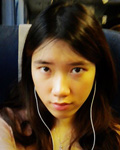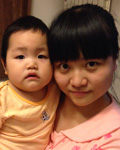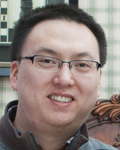|
Editor's Note: Every year sees a number of new words and phrases from the Internet make them into a language's vocabulary. Sorting through the most popular buzzwords and phrases used by China's netizens reveals a virtual smorgasbord of linguistic ingenuity as well as the most noteworthy trends of the last 12 months. Beijing Review takes a look at what was on the tip of China's tongues in 2013
On December 23, 2013, a list of the top 10 phrases and topics on the Internet in 2013 was released by baike.com, the largest Chinese-language encyclopedia online, in conjunction with the Chinese Culture Promotion Society, Dictation Assembly of Chinese Characters and some members of the media. Giving a retrospective of the important issues and social landscape of the past year, the phrases were chosen according to the amount they had been used by netizens throughout the year.
Baike.com has released the annual list in conjunction with other institutions since 2009.
"A huge number of new words and phrases are emerging every day. They can provide us with a mirror, reflecting the opinions and emotions of the people and showing their attitude toward events and life. Through sharing the most popular online words and phrases, we strive to give a clear recording of our time," said a Baike.com spokesperson.
1. Zhongguo Meng
Zhongguo Meng, or the Chinese dream, was put forth by Chinese President Xi Jinping. At its core is realizing national revival, building a rich and strong country, and creating a better life for Chinese people. It represents the new government's determination to build a prosperous, democratic and harmonious modern socialist country.
The Chinese dream grants people equal rights to career opportunities, to realize their dreams and share the achievements of the country. As a result, this phrase was discussed and mentioned widely on the Internet.
2. Tuhao
In 2013, tuhao swept the whole nation, becoming a popular part of the modern Chinese vernacular. It originally referred to tyrannical landlords who were rich and powerful, but acted cruelly against the average people when China was still a feudal society. Today, it is used as a slightly mocking nickname for those who are rich but uncultured. In September, two trends kicked off online: Make friends with tuhao and write poems for tuhao. These online jokes contributed to the ubiquity of the phrase.
According to sociologists, the resurgence of the word tuhao is an outcome of China's social stratification. Tuhao is a label for a new social group in China, the nouveau riche.
Now it has changed from a politically charged insult, into a phrase which provides a true picture of China's existing gap between rich and poor.
3. Wumai
At the beginning of 2013, wumai, or smog, plagued many of China's cities. After winter came, it spread to Harbin in northeast China, and Shanghai, Hangzhou, Nanjing in east China, spreading across the whole nation from north to south.
Warnings came one after another, and people in the affected areas found themselves unable to see the sky. Along with the weather, the haze became a heated topic across the country.
Netizens joked about the bad environment they were living in, and went on to create a series of derivative phrases such as "haze subsidy" and "haze ticket."
Only slightly more than 1 percent of China's top 500 cities meet the air quality standards set by the World Health Organization. Seven of the world's 10 most polluted cities are in China. This situation is increasingly worrying to Chinese people.
4. Zhongguo Dama
In early 2013, Zhongguo dama, which refers to China's bargain-hunting middle-aged women, blew up when The Wall Street Journal noted an increasing number of Chinese women who took advantage of the gold price falls in the global market.
The dama were one of the busiest groups back in 2013. After buying enormous amount of gold at home, they even traveled abroad to buy real estate. Their passionate square dancing also attracted a flood of attention when Chinese women dancing in New York's Sunset Park found themselves cuffed by the police for causing public disorder.
5. Dandu Ertai
The phrase means having a second child if one of the parents doesn't have siblings.
On November 15, the Chinese Government further relaxed its birth control policy at the Third Plenary Session of the 18th CPC Central Committee. It allowed families to have two children if one of the parents is an only child.
In China, about 20 million families meet the requirement. However, many of the parents said they were happy to have the right, but they were not sure whether they would take advantage of it, as the rising costs of childcare may make taking care of more than one bundle of joy too much of a burden.
6. Snowden
Edward Joseph Snowden, a former contractor for the U.S. National Security Agency (NSA), disclosed classified NSA documents to several media outlets, which revealed the details of a global surveillance network operated by the United States working in conjunction with its intelligence allies. Upon the release, he became a focus of much global attention and rapidly became something of a modern folk hero.
7. Bitcoin
Bitcoin is a peer-to-peer payment network and digital currency created in 2009 on the premise of creating a new currency without a central governing body that was free from financial institutions and subject only to market forces. In 2013, bitcoin swept the whole world when it saw a massive surge in value from January to April, hitting an intra-day high of $266, and then experienced a collapse to $105. In November however, it surged again, eventually reaching an all-time high of $1,000.
Currently, only Germany has approved of its status as money in law and tax, with other countries refusing to recognize it as a legitimate currency. After its rapid rises and drops in price, many countries have warned their citizens against trading in bitcoin.
8. Chang'e-3
On December 14, the Chinese lunar probe Chang'e-3 successfully landed on the moon. Later, the accompanying lunar rover Yutu, meaning jade rabbit, separated from the lander and set out on its adventures on the moon's surface.
This success made China the third country, after the United States and the Soviet Union, to successfully achieve a soft-landing on the moon.
9. Fangjie
Gong Aiai, a woman from Shenmu County of north China's Shaanxi Province, was found to possess more than 40 properties in Beijing. The news shocked the whole country, where a large number of people complain about the surging housing price. As a result, she quickly earned the nickname fangjie, meaning a woman with many properties.
She aroused widespread anger among the public, since under the strict house purchasing limits she forged an astonishingly large number of IDs.
10. Da Huang Ya
In 2013, Rubber Duck, spelled in Da Huang Ya in Chinese pinyin, which was created by Dutch artist Florentijn Hofman, crossed half the globe and arrived in China. In May, it appeared in Hong Kong and later arrived in Beijing, attracting many visitors during its stops in the cities.
The phrases mentioned in this article were popular both on the Internet and in real life. Five people shared their opinions on the list

Zhu Kaili, 29, employee of a telecom equipment company
Originally, tuhao was a negative phrase. Thanks to the enthusiasm and creativity of netizens, however, its connotations have become much broader. It's a popular subject for jokes. For instance, if a friend is having porridge and you are having steak, you will be jokingly called a tuhao. When my workmates buy electric rice cookers worth 300 yuan ($49.47), but mine is worth 1,000 yuan ($164.9), I was called a tuhao. And we are OK with this. It is just fun.
Tuhao is not an insult but a neutral word, and to some degree it could even be considered a compliment. I would be glad if someone called me tuhao, because first of all, you have to be rich to be tuhao. And tuhao means paying attention to the quality of your life.

Huang Jiajia, 25, employee of a foreign trade company
The purchasing power of Chinese dama shook the gold market this year. They withstood the biggest intra-day increase in gold prices and also survived its sudden decline. Faced with the worsening situation of gold, they turned their hands to real estate. They flew to Jeju Island of South Korea, purchasing properties and giving the sluggish South Korean real estate market a shot in the arm.
In this regard, Chinese dama is more like a phenomenon, a mark of our time. They are not different from foreign dama in terms of irrational investment. Their blind purchasing behavior is actually a reflection of the conflict between the surging demand for more investment opportunities and the narrow space for private capital. Chinese dama are both lovely and annoying. They are actually our older generation, and we just wish not to be like them in the future.

Li Nan, 27, employee at a research institute
I think the reason the rubber duck was so popular was because it reminds us of our childhood memories. When I was little, my mom always put a small yellow rubber duck in the tub as company while giving me a bath. Today, people in this modern city forget those simple joys from the beginning of life. The huge Rubber Duck awakened us.
When the Rubber Duck came to Beijing, I took my one-year-old daughter to see it. It was indeed thrilling! When my daughter saw the huge duck, she was very excited. And I bought a miniature of the Rubber Duck for her as a gift.

Yang Rongrong, 32, a housewife
The new policy that allows families to have two children if one of the parents is an only child is great. Many qualified couples can have a second child if they want. But to have the right is one thing, while actually having a second child is quite another. I won't have a second child myself. To bring up a child asks for too much time and energy. I have a 3-year-old whom I adore so much, but I don't want to experience the pregnancy and baby-care process again. The financial burden brought by a second child is another reason.

Li Xin, 32, a human resources supervisor
A large number of young people are working hard, saving every penny to buy an apartment through a mortgage in big cities such as Beijing, Shanghai and Guangzhou. Gong Aiai possesses more than 40 apartments in Beijing. This is appalling.
People can't help asking: How could she get so much money as a former deputy chief of the Shenmu Rural Commercial Bank? How did she do it under the strict house purchase limit in the big cities?
The truth was she forged a number of IDs. This reveals a big loophole in the management and regulation of house purchases and ID registration. What's more, she may not be the only one who has abused the privilege to acquire so much property. This is even more alarming.
Email us at: yuyan@bjreview.com | 